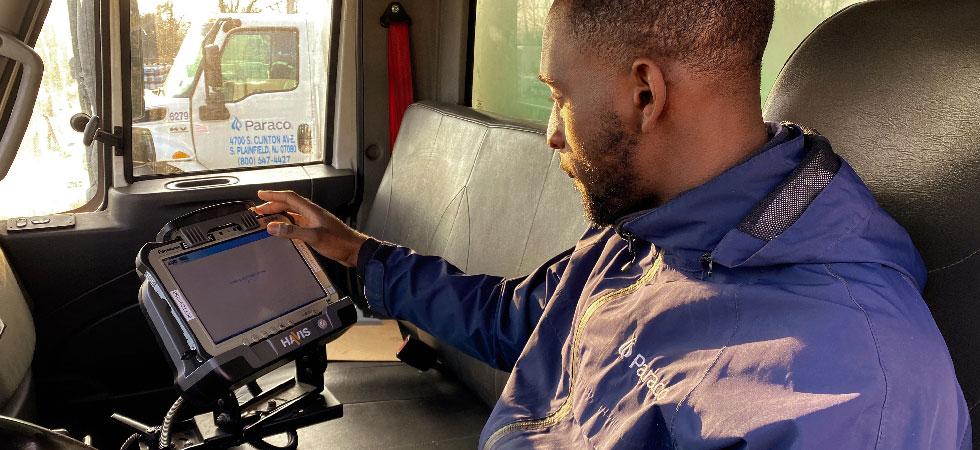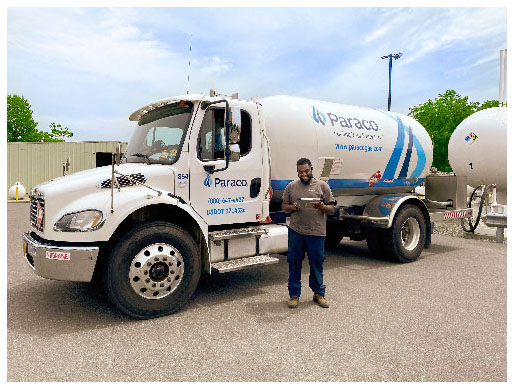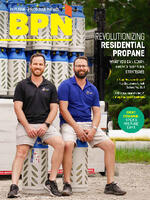
While consumers have come to expect robust online service platforms and self-service technologies to be available in the palms of their hands on their smart devices, the propane industry has been notoriously behind the times. In response to this, Paraco Gas is attempting a companywide overhaul of internal processes as well as all customer communications. This will ultimately include the beginning point of the sales process for new customers, ongoing customer service and every other customer touchpoint.
Starting in 2019, the entire company began transitioning to a customer relationship management (CRM) software system, which put its marketing, sales and service teams on the same platform for the first time ever, giving customers faster and more efficient interactions with the propane company. Within five years, it’s expected that this new platform will reduce more than 14,000 hours of redundant work per year, about 10% of the mileage for the field service team and more than $1 million in financial expense.
Starting the Process
Because the company’s leadership team understood the business case for this investment and fully supported the initiative to make this transition, the first step for implementation was simple. Then the company vetted around 20 pieces of software, evaluating offerings, availability and cost.
Paraco ran several small trials of several different software to determine the best fit with the business. Then it ran a year of software development, during which the team worked daily with its integration partner to teach the integration team about the business and ensure the product they customized would fit Paraco’s needs.
Ask & You Shall Receive
For years, customers had asked for less of a wait time from the time they sign a contract to the time that service begins; to be provided with more specific, tighter windows for appointments; and streamlined communication with their propane provider. These requests are heard frequently in the propane industry, and this new technology delivers on all three requests:
1. From Purchase to Service
Prior to the new technology, the hardcopy paper process would take an average of three days for a technician to be able to schedule a service installation appointment after the customer signed a new contract. Now, contracts can be signed digitally and technicians are able to see the quote as soon as it is signed, which means they can get in touch with the customer that very same day.
2. Service Appointments
The new technology allows customers to schedule appointments online with tighter and more specific time windows, provides adaptive and smart routing software for field service technicians and allows customers to follow their technician’s estimated time of arrival in real time via text message.
3. Streamlined Communication
Thanks to the app-based software that can be accessed from anywhere, service technicians and administrative staff are freed up to be more accessible to the customers’ needs. In the field, service technicians can now provide quotes, make changes to orders and set up appointments. At the office, administrative staff can spend less time on data entry and more time on customer communication and other operations within the company.
Not only will this new system improve customer satisfaction by reducing hold times, wait time before a service starts and wait times for a longer service appointment window, but the company will also realize tremendous efficiencies, creating a better work environment for the team while also creating financial savings. Decreased service time will also help improve the capacity to take on more work with shortened lead times, allowing the team to accomplish more in house rather than having to hand off overflow to subcontractors.
As an example, utilizing street level routing is already leading to significant results for the miles driven between service stops. Because of this change, Paraco has been able to spend more time on customer jobsites and less time traveling between stops. In turn, this has already started to reduce lead time for service appointments.
In addition to reducing lead time for getting to our customers quicker, the Paraco team has also been able to commit to appointments on the customer’s first call and offer smaller appointment windows as well. Moreover, the technology sets up automated appointment reminders with its customers, providing status updates about the service technician’s progress during the day of their appointment.
As someone who has spent time in the field, I heard many requests for these types of features directly from customers and colleagues. Since Paraco did not previously have access to information in the field, it was hard to move beyond those limitations. Understandably, it was easy to get support for the transition to using a CRM platform from employees throughout the company.
Lessons Learned
It was both a benefit and a challenge that this software project touched nearly every department within the business. What the team learned and focused on was the importance of time management for everyone involved with the development and rollout of the project and the coordination of department heads and team leads. Paraco made sure that everyone had time to learn, provide input and support the implementation — especially while working through the added challenges and requirements that COVID-19 presented.
During the development and transition, the team also took the opportunity to examine current processes. Instead of falling into a trap of trying to recreate current processes within the new platform, the team embraced this as an opportunity to create new processes that take full advantage of the new software.
Now that the new platform has been launched, this technology is helping the company’s service team work efficiently and quickly to address customers’ concerns, rather than having to refer inquiries back to the office, and the team appreciates having that ability to provide this higher level of customer service.
Since beginning the internal work for the transition to the platform in October 2019, the changes have already helped the team improve operations in navigating logistics that the pandemic forced. The platform complemented the company’s efforts to go paperless, and because all departments can access the platform, it does away with the need for every staff member to be physically present in the office.
Additionally, because field service technicians have access to all of the information they need through the app, they are able to go directly from their homes to the customer without stopping (sometimes out of their way) at a Paraco location first.
The transition has not only met customers’ expectations and saved money, but more importantly, it has provided a forward-thinking, innovative work environment as the company grows and adds to its team.
Words of Advice
For anyone considering a major transition to a tech platform, the most important part of a project like this is the focus on change management with the employees and leaders who will be directly impacted by it. Take time to explain “why” you are making a change, not only the “what and when.” If you can create excitement about the project and how it addresses any current and potential business gaps, then the transition will be much smoother and even more impactful.


